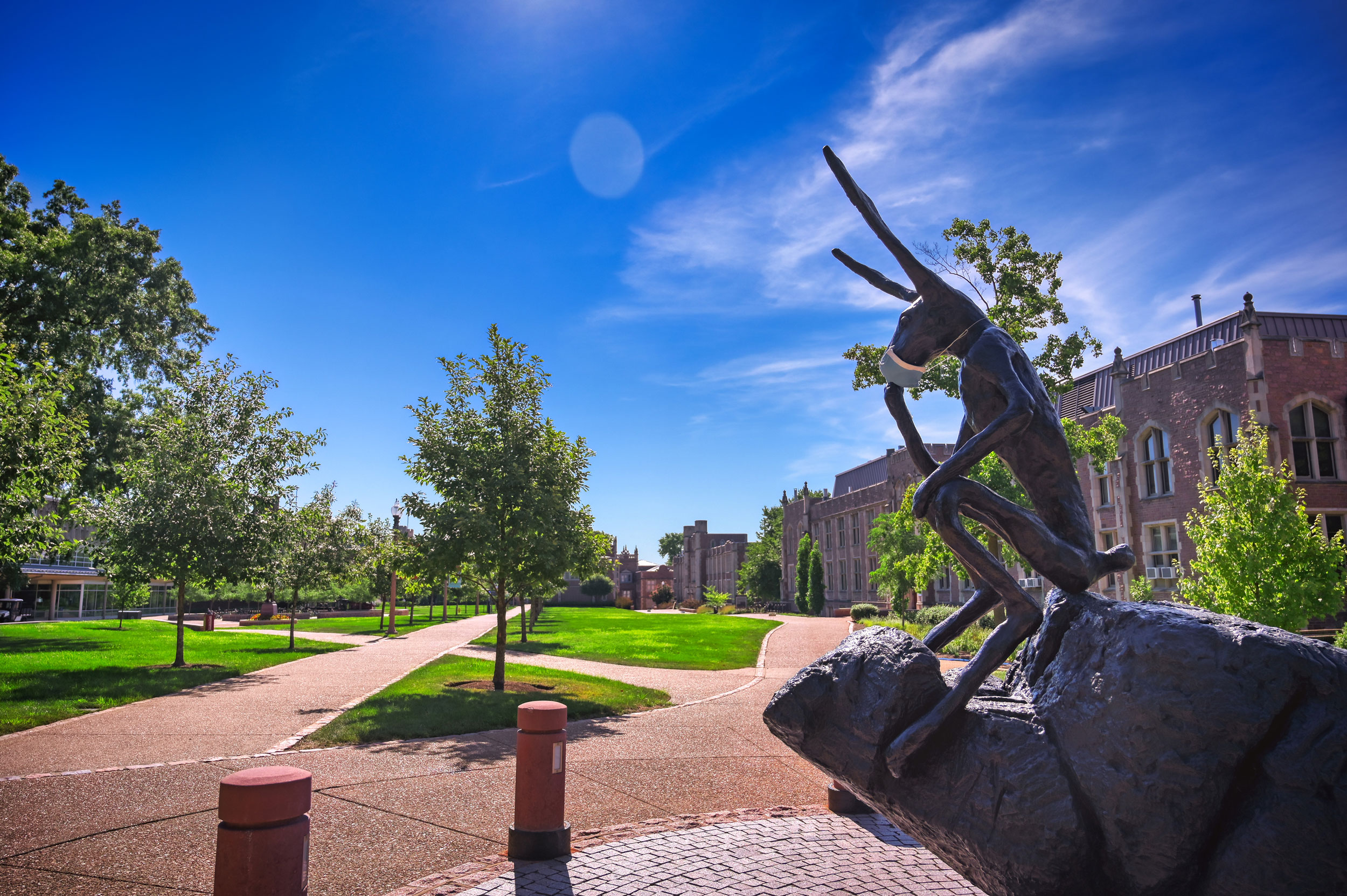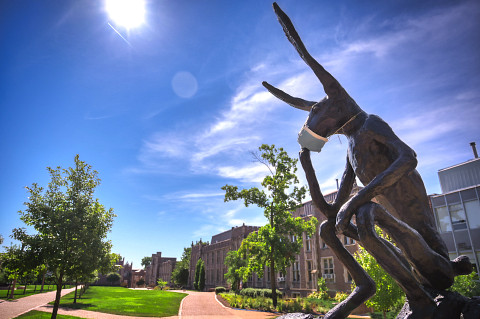
Archiving the COVID-19 Experience at Washington University
University Archives is comprised of more than 300 unique collections that chronicle the history of Washington University from 1853 to today. A division of the Washington University Libraries’ Julian Edison Department of Special Collections, University Archives collects, preserves, and provides access to these materials in order to support research, teaching, and learning.

Since March 2020, I have been collecting a variety of material related to COVID-19 and Washington University. Much of what I have collected has been online resources. We are able to capture university webpages, many of which include COVID-19 information, with Archive-It, a web-archiving service from Internet Archive. The webpages are then made available for us and for researchers.
We collect university publications, because these materials feature articles relating to COVID-19 and the university. We archive The Record, which comes out via email and is available on the university website. We also capture Washington Magazine with Archive-It and save print copies of the magazine when they’re available. In March 2020, we created the WashU in the News COVID-19 Collection to capture external news articles with contributions by faculty, researchers, and staff.
Additionally, we are collecting general university materials, such as images from University Marketing & Communications and COVID-19-related emails from the Chancellor, Provost, and Student Affairs. We have also been collecting physical and digital student materials, including the newspaper Student Life and Student Union records, that document COVID-19 at the university.
Commencement at Washington University during the pandemic is another area we’ve focused on. We captured the videos of the virtual School and Affinity Group Commencement Recognition Ceremonies in May 2020. Commencement items that were mailed to graduates since there were no in-person ceremonies—a T-shirt resembling a graduation gown, a cap, a special tassel, and a note from the Chancellor—have also been archived.
University Archives is gathering material related to special projects that have been developed at Washington University because of COVID-19:
Life/Lines is a poetry project hosted by the Center for the Humanities to capture creative work by faculty, staff, and students during the pandemic.
University Marketing & Communications started the Share Your Story project for students, faculty, medical professionals, staff, alumni, and friends to document their personal experiences and stories.
The Gratitude Project, developed by the Innovation subcommittee of the Chancellor’s Fall Contingency Planning Committee, highlights stories of how faculty, staff, and students are rising up for the greater good.
The students in the class “Health and Disease in World History,” taught by Corinna Treitel, are constructing an archive of primary sources related to the pandemic experiences of the Washington University community, and some of that material will come to University Archives. The students are working in small groups on topics ranging from social distancing and mental health to inequality/protest and scientific responses. They are gathering photos, conducting interviews, recording memories, and assembling many other kinds of sources. Along the way, they are learning what archives do, where primary sources come from, and how historical knowledge is built from the primary sources that archives collect.
In order to build these archival collections, I have collaborated with my colleagues on the University Libraries’ Department of Special Collections Web Archiving Team—Robert Manley, Gail Walters, and Sarah Weeks—who have worked to capture the various websites with Archive-It. I have also worked with Anne Cleary and Rachel Twedt in University Marketing & Communications to coordinate campus images for archiving. If you’d like more information about these collecting efforts, please contact me at srooney@wustl.edu.
This article first appeared on the Center for the Humanities’ blog, Human Ties: Stories in the Humanities.
